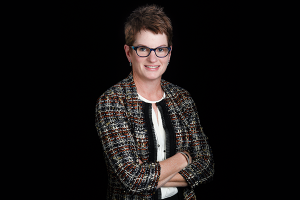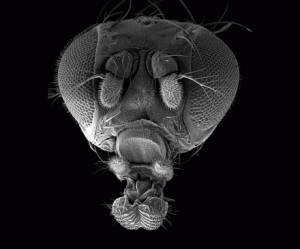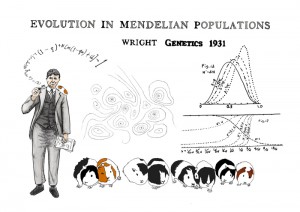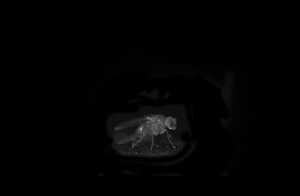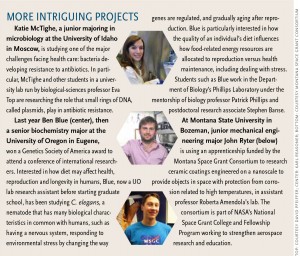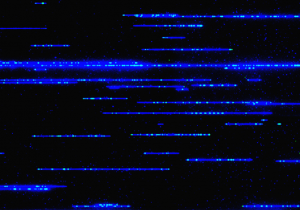Enter your address to receive notifications about new posts to your email.
-
Genetics Society of America awards Detlef Weigel the 2016 GSA Medal
Detlef Weigel (Max Plank Institute for Developmental Biology, Tuebingen) has been awarded the GSA Medal for his outstanding contributions to the field of genetics in the last 15 years. “Detlef’s blend of biology, genetics, and genomics technology has been key to many advances at the intersection of modern plant developmental and evolutionary biology”, said…
-
GSA member Erin O’Shea named next HHMI President
GSA member Erin K. O’Shea has been selected by the Howard Hughes Medical Institute (HHMI) as its sixth president and will assume the top position on September 1, 2016. O’Shea has served as HHMI’S vice president and chief scientific officer since 2013. She is also a professor at Harvard University. With a background in yeast research, O’Shea’s…
-
New in G3: Dark flies, wavy flies, and stressed yeast
Check out the February issue of G3! Investigations Comparative Phylogenomics of Pathogenic and Nonpathogenic Species Emily Whiston and John W. Taylor G3 February 2016 6:235-244; Early Online November 27, 2015, doi:10.1534/g3.115.022806 Abstract | Full Text | Full Text (PDF) | Supporting Information An RNAi-Based Candidate Screen for Modifiers of the CHD1 Chromatin Remodeler and Assembly Factor…
-
Sewall Wright: Evolving Mendel
In 1931, Sewall Wright—a quiet American geneticist specializing in livestock and guinea pigs—published a GENETICS paper that changed how we study evolution. Wright’s “Evolution in Mendelian populations” was one of the founding documents of population genetics and was among the first formal frameworks to reconcile Mendel’s laws of inheritance with Darwin’s vision of natural selection.…
-
The evolution of Dark-fly
On November 11, 1954, Syuiti Mori turned out the lights on a small group of fruit flies. More than sixty years later, the descendents of those flies have adapted to life without light. These flies—a variety now known as “Dark-fly”—outcompete their light-loving cousins when they live together in constant darkness, according to research reported in…
-
Science writing internship at Genes to Genomes
Intern with Genes to Genomes! The Genetics Society of America journals, GENETICS and G3: Genes|Genomes|Genetics, seek an intern with a talent for storytelling and a strong background in genetics or a related scientific field. The intern will work closely with editorial staff to write posts for the Genes to Genomes blog and contribute to other writing,…
-
Policy Points: from the farm to the moon
Following the much appreciated budget increases for scientific agencies in December, science and health advocates alike were ecstatic at the mention of a “cancer moonshot” in President Obama’s final State of the Union Address to the House of Representatives. It is reported that the White House plans to request $755 million for cancer research funding as…
-
Funding Opportunity: USDA predoc/postdoc fellowships
The U.S. Department of Agriculture’s National Institute of Food and Agriculture (NIFA) is seeking applications for predoctoral and postdoctoral fellowships offered through the Agriculture and Food Research Initiative (AFRI) and its Education and Literacy Initiative. The fellowships will support training and students and postdocs relevant to AFRI’s six identified challenge areas: childhood obesity prevention, climate change,…
-
GSA undergrad member featured in Alaska Airlines magazine
GSA undergraduate member Ben Blue was featured in the January 2016 issue of Alaska Airlines’ Alaska Beyond | Horizon Edition Magazine. As part of an article on college students conducting research that may make a difference in the world, the magazine highlighted Ben’s research on how diet affects health. Working in the lab of Patrick Phillips at the…
-
Mapping structural variants with nanochannel arrays
Short-read sequencing has fueled the acceleration of genetic research But though these next-generation methods are fast and efficient, they can’t do everything well. One important area in which short-reads fall short is detecting structural variants (SV), where chunks of the genome are deleted, inserted, repeated, inverted, or in some other way shuffled around compared to…
-
New Faculty Profile: Xantha Karp
New Faculty Profiles showcase GSA members who are establishing their first independent labs. If you’d like to be considered for a profile, please complete this form on the GSA website. Xantha Karp Assistant Professor of Biology Central Michigan University Lab website Research program: During aging, stem cells gradually become less effective at renewing tissue,…


